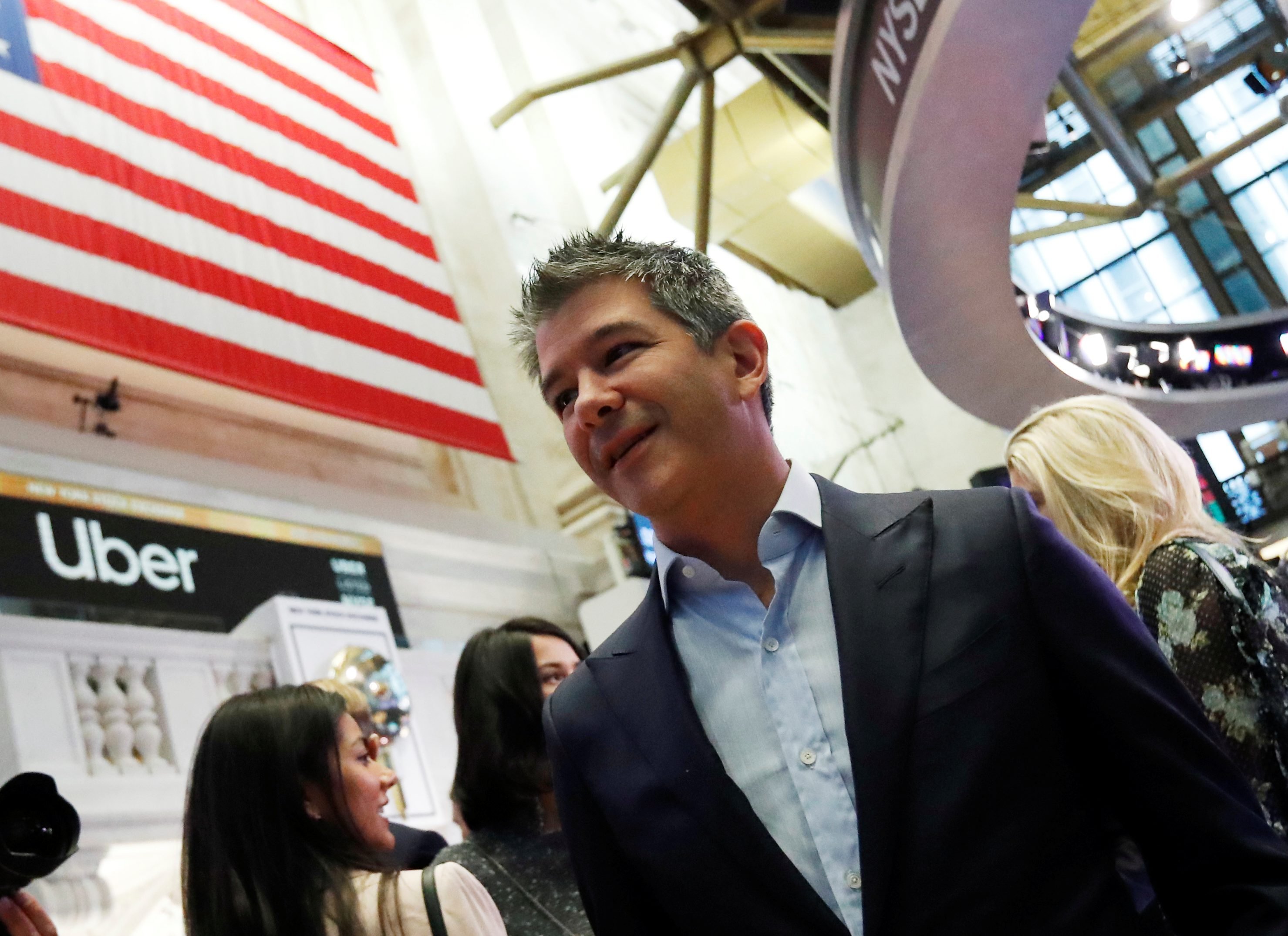- Uber went public on Friday, May 10, in one of the biggest IPOs ever, but news hasn’t always been so rosy for the company.
- Over the years, Uber has been plagued by a long list of scandals, ranging from reports of sexual harassment to aggressive strategies to take down the competition.
- Here’s a look back at the biggest scandals that have rocked the company over the last decade.
- Read more stories like this on the Business Insider homepage.
Uber went public on Friday, May 10, in one of the biggest IPOs in history. The major move paints a rosy picture for the company but over the years a series of scandals helped define the thriving organization’s legacy as one mired in scandal.
Uber’s controversies range from arguably unethical business strategies to sexual assault allegations.
Here’s a look back at the scandals the came before Uber went public at an initial market cap of $75.5 billion.
Biz Carson, Julie Bort, and Graham Rapier contributed reporting to this story.
October 2010: UberCab receives its first cease and desist

According to New York Magazine's extensive list of Uber's ups and downs, the company's first scandal came before the startup changed its name from UberCab to Uber. Four months after launching in San Francisco, the San Francisco Metro Transit Authority & the Public Utilities Commission of California issued a cease and desist order.
UberCab changed its name to Uber. Six years later, San Francisco would have roughly 45,000 Uber drivers, compared to just 2,026 licensed taxis.
January 2012: Uber gets slammed in its first major surge pricing backlash
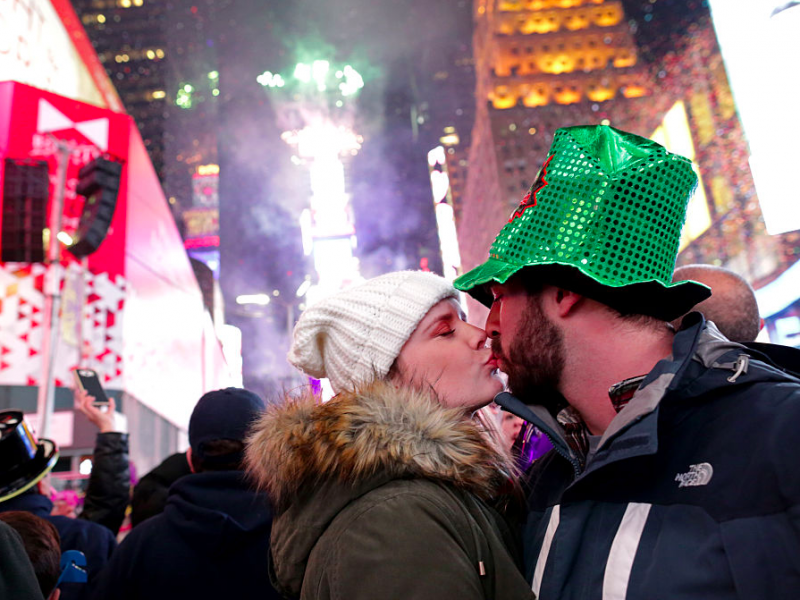
Uber told customers that prices would increase due to increased demand on New Years Eve. However, people were still furious when they were forced to pay three to six-times the normal amount to get a ride.
November 2012: Prices soar during Hurricane Sandy

With most public transportation down in New York City, Ubers were in high demand, leading to prices doubling. After being accused to price gouging, the company made prices revert back to normal, while continuing to pay drivers two times the rate.
September 2013: A passenger accuses an Uber driver of choking her
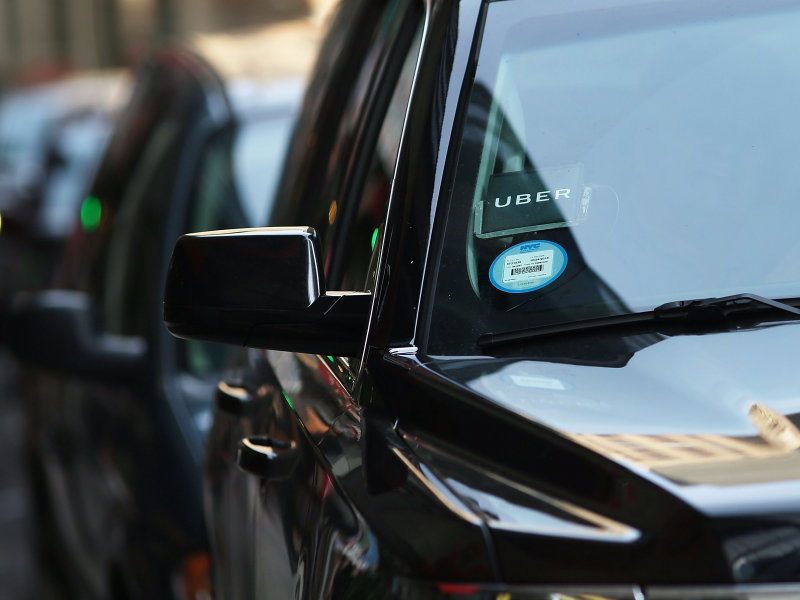
Washington, D.C., resident Bridget Todd tweeted that a driver grabbed her out of the car by her throat because she was kissing her "white husband." The driver said that Todd was extremely intoxicated and had been behaving aggressively, and a fight had broken out between them.
Valleywag reported that CEO Travis Kalanick emailed the company's press team at the time, blaming the media for thinking that Uber is "somehow liable for these incidents that aren't even real in the first place."
December 2013: Uber drivers file a lawsuit against the company
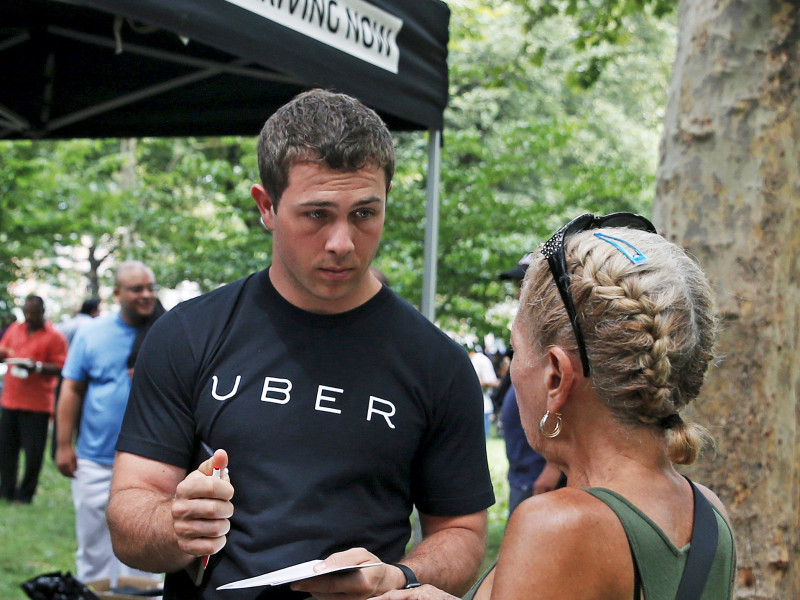
The suit, filed on behalf of 350,000 current and former Uber drivers in California and Massachusetts, claims that drivers should be treated as employees, not contract workers. If the drivers were to be considered employees, Uber would have to pay minimum wage and provide benefits such as health insurance.
The case was settled out of court in 2016.
January 2014: Uber employees purposefully waste rival drivers' time
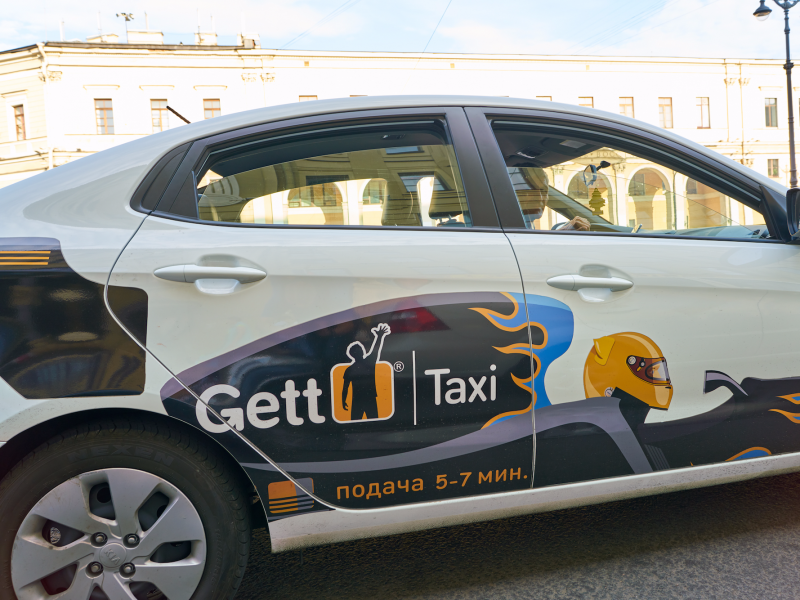
"Uber employees have been posing as pedestrians, creating Gett accounts for the sole purpose of scheduling and then canceling Gett rides," Valleywag's Sam Biddle reported. "The result is clear: wasted time for Gett drivers, fewer available rides for Gett users, and general disarray for the whole service."
According to Valleywag, top Uber executives in New York City were allegedly involved in the plan and would try and convince the drivers to work for Uber. At the time, Uber called the strategy a "sales tactic" that got "too aggressive."
January 2014: Reports emerge that an Uber driver accused of assault has a criminal record
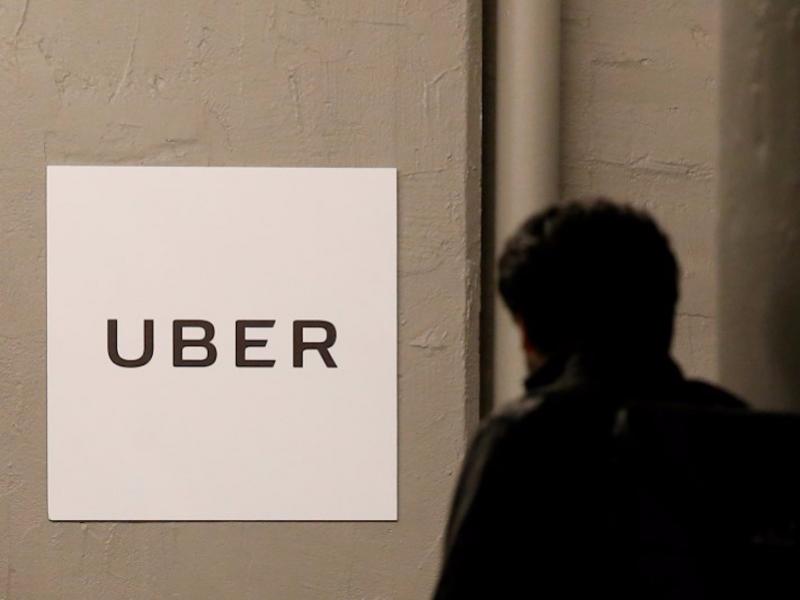
Pando reported that an Uber driver who allegedly called a user a "dirty Mexican faggot" had a "criminal record, including felony and misdemeanor charges, and at least one felony conviction involving prison time."
February 2014: Kalanick calls Uber "Boob-er," prompting questions regarding the company's treatment of women
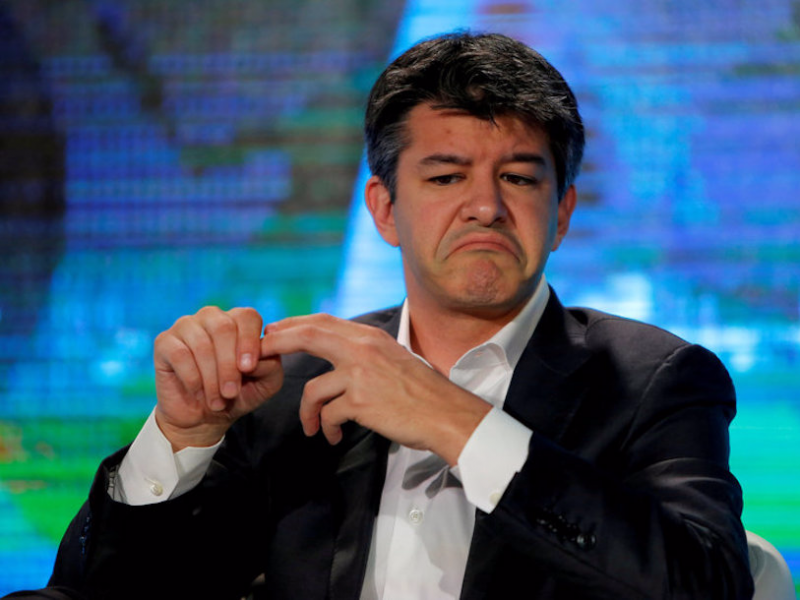
A GQ profile of the CEO reads: "When I tease him about his skyrocketing desirability, he deflects with a wisecrack about women on demand: 'Yeah, we call that Boob-er.'"
In the same profile, Kalanick says he'd rather be clubbing than working when he's in Miami.
Unsurprisingly, many saw this as a red flag for the company's culture.
August 2014: Uber is slammed for trying to undermine Lyft
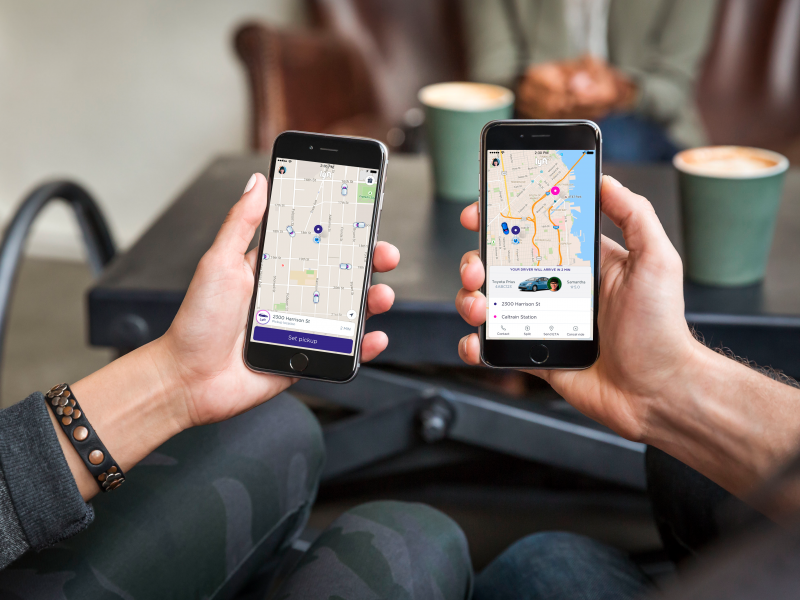
The Verge reported: "Uber is arming teams of independent contractors with burner phones and credit cards as part of its sophisticated effort to undermine Lyft and other competitors."
Similar to attempts to waste Gett drivers' time, Uber reportedly used this as a strategy to undermine Lyft and other rivals.
October 2014: Uber is criticized for sexism after "hot chicks" promotion
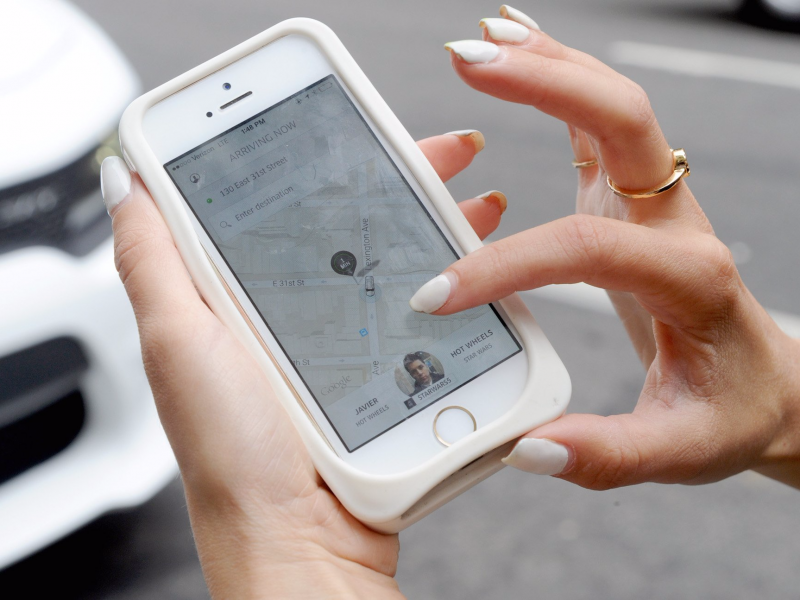
Uber's branch in Lyon, France debuted a promotion to pair Uber customers with "hot chick" drivers. After backlash, the promotion was quickly killed and scrubbed from the internet.
"I am not surprised that someone inside the company took Kalanick's callous attitude towards female riders and comments like 'Boober' to mean that shocking level of exploitation and disrespect was appropriate - that it would even be celebrated by HQ," Pando's Sarah Lacy wrote of the incident.
November 2014: A senior executives suggest the company should dig up dirt on reporters that cover Uber
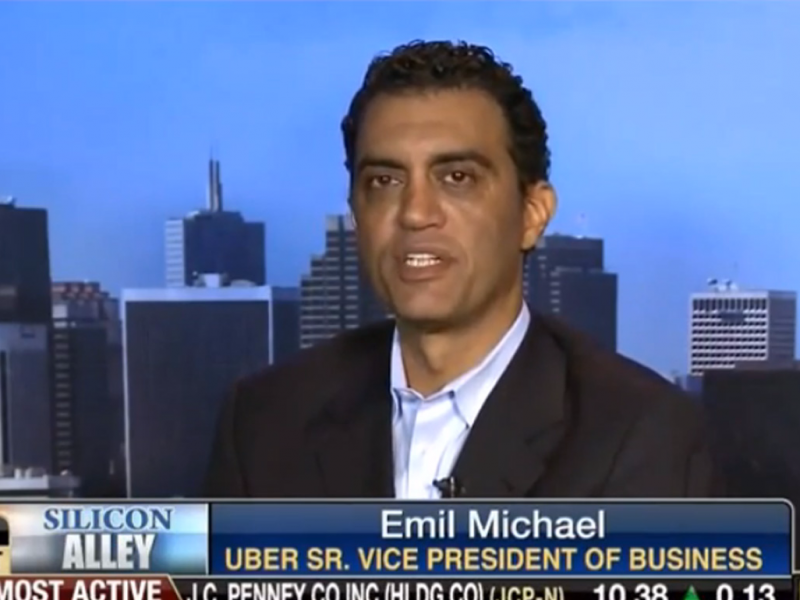
BuzzFeed reported that Emil Michael, then Uber's senior vice president of business, suggested that Uber should invest in opposition research on reporters during a private dinner he believed to be off the record.
"Over dinner, he outlined the notion of spending 'a million dollars' to hire four top opposition researchers and four journalists," BuzzFeed reported. "That team could, he said, help Uber fight back against the press - they'd look into 'your personal lives, your families,' and give the media a taste of its own medicine."
Michael said he regretted the comments and that they didn't reflect his or Uber's views.
December 2014: Uber is banned in Delhi after rape accusation
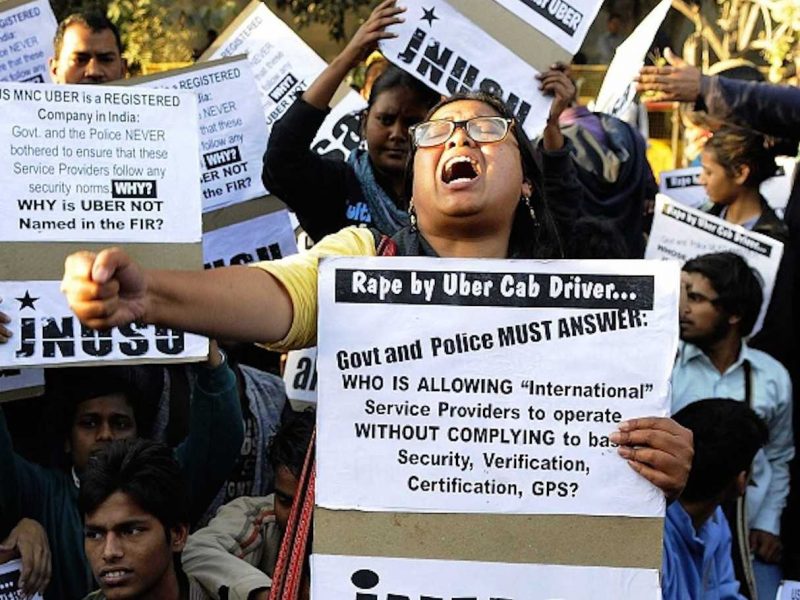
The region of India banned Uber after a passenger reported that she was taken to a secluded area and raped by her driver.
May 2015: Uber reportedly poaches 50 employees from Carnegie Mellon’s top robotics lab

The Verge reported: "Uber snatched up about 50 people from Carnegie Mellon, including many from its highest ranks. That's an unusually high number of people to leave at once, and accounted for about a third of the staff NREC had at the end of last year."
June 2015: French taxi drivers slam Uber as "economic terrorism"
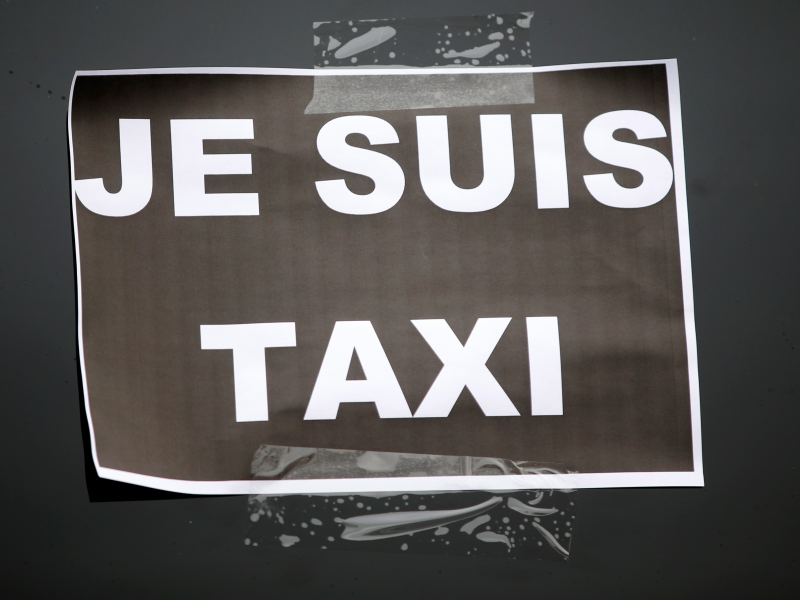
French officials investigated the company and taxi drivers strike to protest the company's attempts to expand its low-cost UberPOP service.
"'Economic terrorism' is the favored term of Parisian taxi drivers for Uber's lower prices, flexible hours and the way it is operating outside French law," the New York Times reported.
French courts cracked down on Uber, and UberPOP was discontinued in the country.
January 2016: Uber strikes a settlement following concerns regarding 'God View' tracking
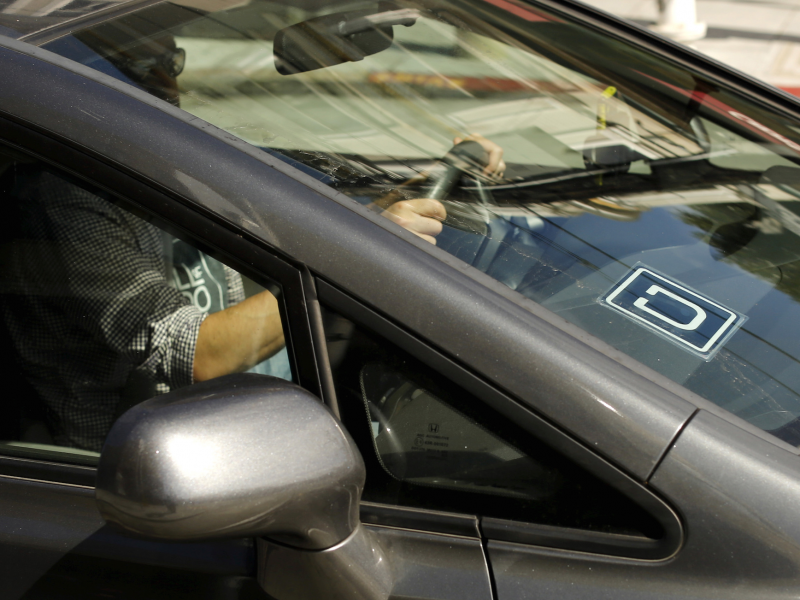
In November 2014, Buzzfeed reported that Uber had tracked one of its reporters using a tool nicknamed "God View" that allowed the company to track cars and see personal information of the drivers in the cars.
Uber struck a settlement with the New York Attorney General, ending an investigation into the company's privacy practices, including its use of "God View." The company paid a $20,000 fine for not disclosing a data breach in a timely manner. It also removed personal information from tracking and limited which employees could use the tool.
February 2016: Uber agrees to pay $28.5 million to end a lawsuit about safety ads
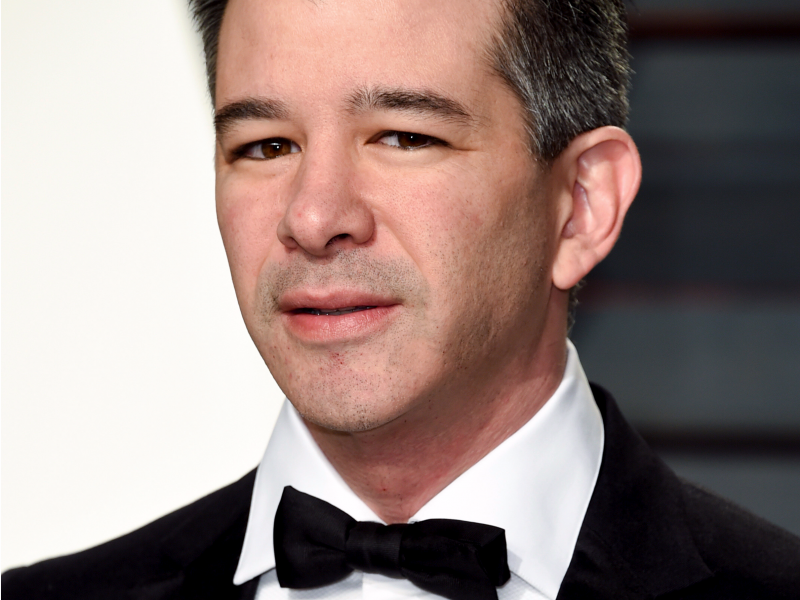
Uber agreed to pay $28.5 million to 25 million riders after plaintiffs in two lawsuits argued the company misled customers about safety practices.
As part of the settlement, Uber must refrain from using certain superlatives like "industry-leading" or "best in class" when describing its background checks.
February 2016: Uber driver accused of shooting eight people

Uber driver Jason Dalton is accused of shooting eight people, six fatally, around Kalamazoo, Michigan.
Dalton had no criminal history and passed Uber's background checks. Dalton's rating as an Uber driver was "good," according to its chief security officer, Joe Sullivan.
In March, Dalton blamed Uber for the attack when he said to investigators that the app made him "like a puppet."
May 2016: Uber pulls out of Austin, Texas after teaming up with Lyft to spend more than $8 million campaigning to change laws in the city
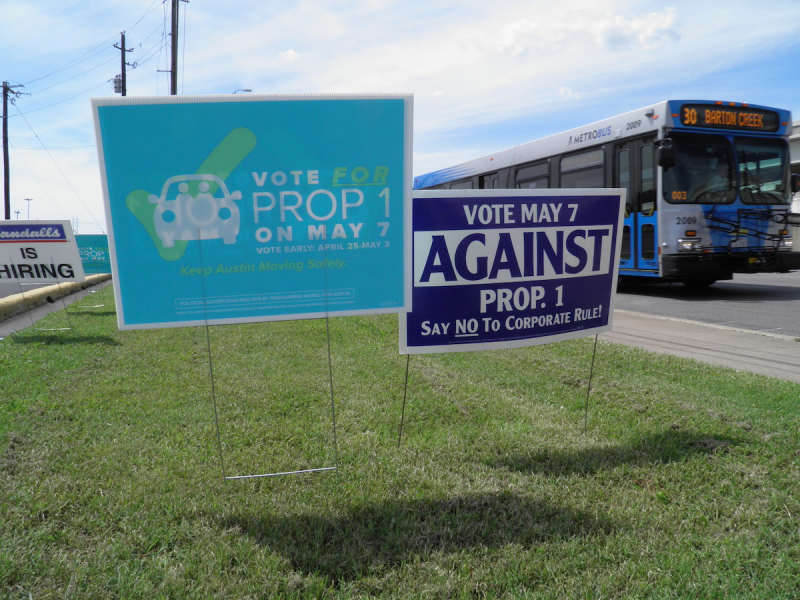
Voters ultimately backed a law that requires drivers to get fingerprint background checks, despite Uber and Lyft's expensive campaign against the measure.
August 2016: Judge rejects Uber's $100 million settlement with drivers
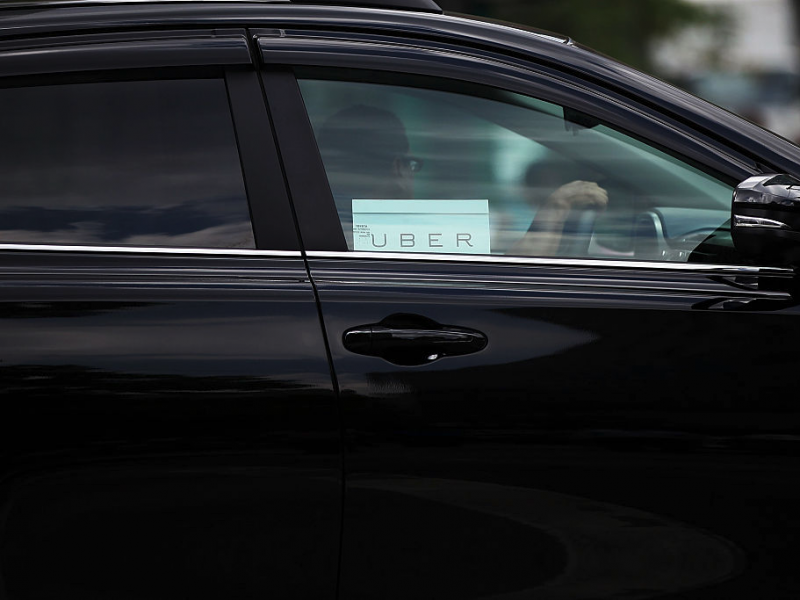
In April, Uber announced that it had agreed to settle a court case brought by drivers in California and Massachusetts for $84 million - $100 million if the company goes public at a higher valuation.
"Judge Edward Chen denied the plaintiff's motion to settle the case, saying that it was neither fair nor accurate, citing the tipping policy as one change not nearly as valuable as the settlement had suggested," Business Insider reported at the time.
December 2016: Kalanick announces he will join Trump's economic-advisory council, along with other business leaders
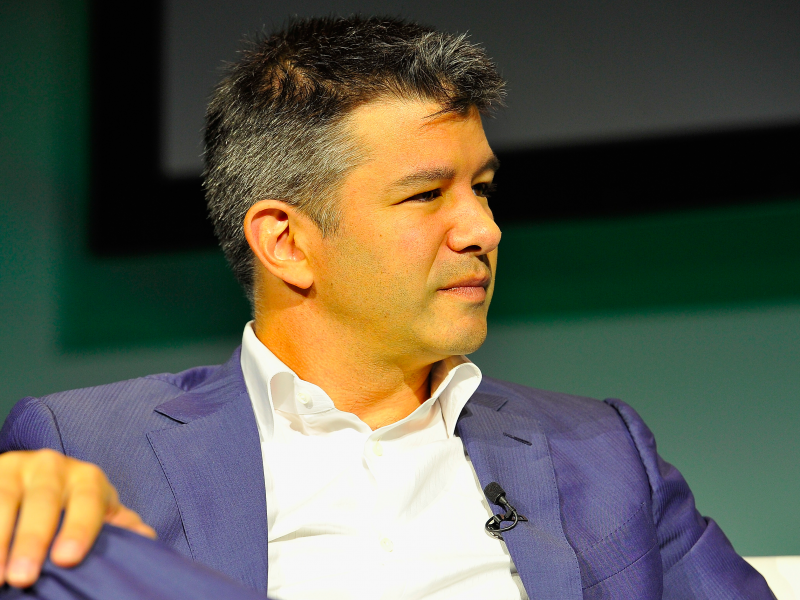
In January, the #DeleteUber movement led to a flurry of account deletions by customers upset about the company's ties to President Trump. The company lost more than 200,000 customers in just one weekend.
January 2017: Uber is accused of attempting to profit off of a taxi drivers' strike
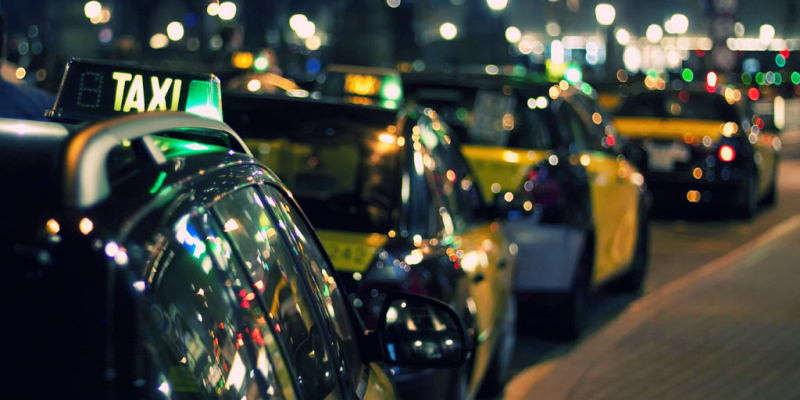
In January 2017, Uber was accused of attempting to profit off of a taxi workers' strike at JFK airport when it suspended surge pricing to and from the airport after a taxi union announced the action. Uber defended itself by saying that the surge price suspension actually came 30 minutes after the strike had ended, but the confusion only added to January's #DeleteUber fervor.
February 2017: A female engineer who used to work at Uber publishes a blog post about sexual harassment and gender inequality at the company

Susan Fowler writes in a blog post that she was sexually harassed at Uber and experienced gender bias during her time at the company. She claims a manager propositioned her and asked for sex, but she says her complaints to Uber's human resources department were dismissed because the manager was a high performer.
Uber CEO Travis Kalanick immediately pledges to look into Fowler's allegations, and the company hires Eric Holder, a former US attorney general, to lead an independent investigation into its workplace culture.
In a follow-up story, The New York Times reported Uber employees allegedly did cocaine during a company retreat and a manager had to be fired after groping multiple women.
February 2017: Uber investors blast the company for cultural shortcomings

In an open letter to Uber's investors and board, Freada and Mitch Kapor say Uber has ignored their years long behind-the-scenes efforts to positively influence the company's culture.
"We are speaking up now because we are disappointed and frustrated; we feel we have hit a dead end in trying to influence the company quietly from the inside," the Kapors write.
February 2017: Another ride-hailing service sues Uber over claims of property theft
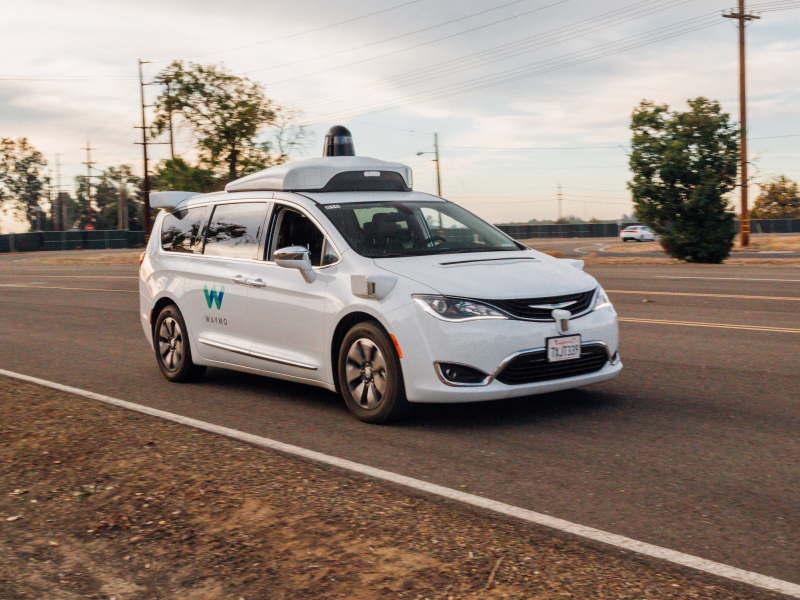
Waymo, formerly Google's self-driving-car division, accuses Uber of using stolen technology to advance its own autonomous-car development. The suit claims a team of ex-Google engineers stole Waymo's design for the laser sensor that allows self-driving cars to map the environment around them.
February 2017: Kalanick is caught fighting with an Uber drive on camera
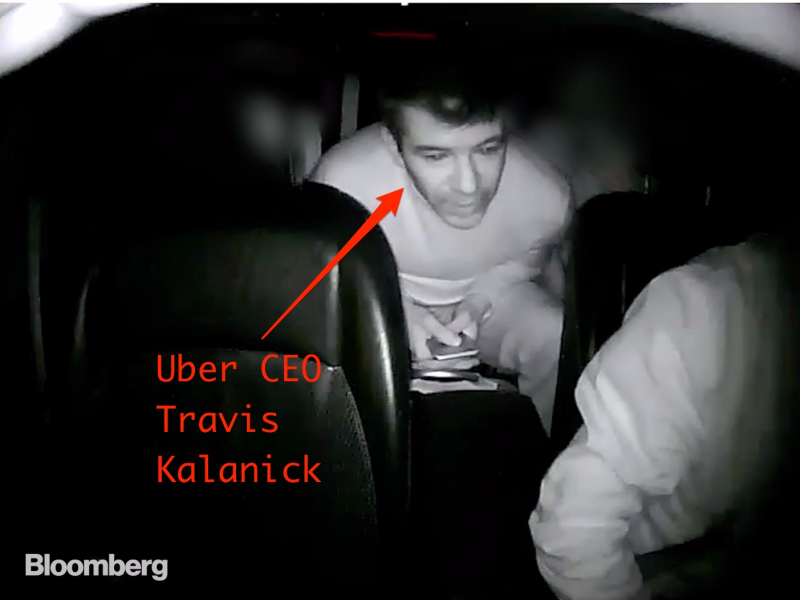
Bloomberg publishes a video showing Kalanick losing his cool in an argument with an Uber driver after the driver confronted him about reduced fares.
Kalanick issues a "profound" apology and says he'll seek leadership help.
"My job as your leader is to lead…and that starts with behaving in a way that makes us all proud," he wrote in his apology note. "That is not what I did, and it cannot be explained away. This is the first time I've been willing to admit that I need leadership help and I intend to get it."
March 2017: The New York Times reveals Uber has been secretly deceiving authorities for years with a tool called 'Greyball'
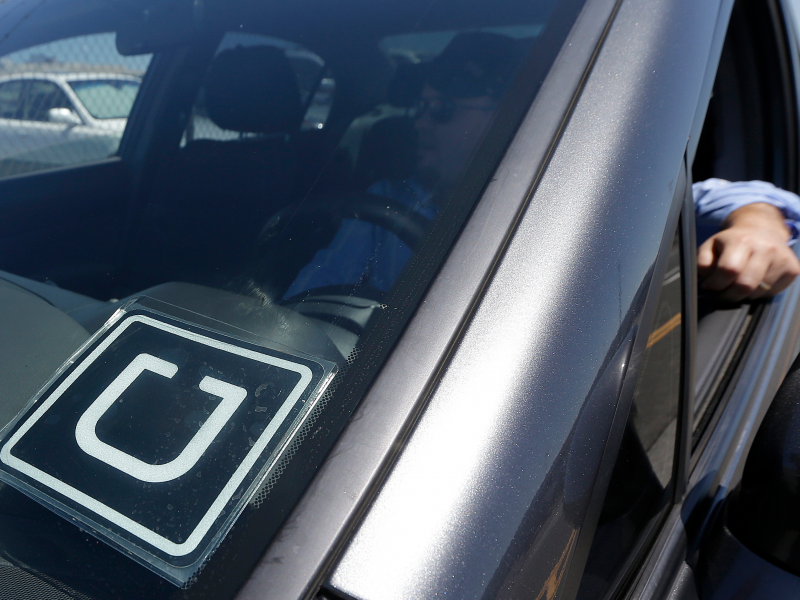
Uber used the tool to evade authorities, particularly at times when city regulators were trying to block the ride-hailing service, according to a report by The Times' Mike Isaac.
The tool collected data from Uber's app to identify and evade officials in cities like Boston, Paris, and Las Vegas. The Times reports that the program was used in markets where Uber was banned or being resisted by law enforcement.
March 2017: Executives flee the company
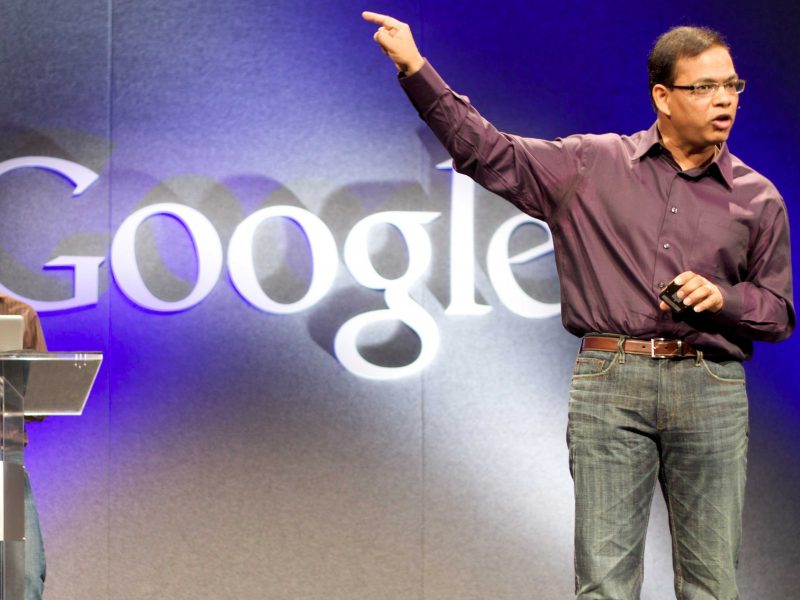
Five executives left the company in less than a month in late February and early March, including Uber's senior vice president of engineering Amit Singhal, who stepped down amid allegations of sexual harassment. Singhal, who passed Uber's standard background checks before joining the company, strenuously denied the allegations.
March 2017: Travis Kalanick's visit to a Seoul escort-karaoke bar is revealed
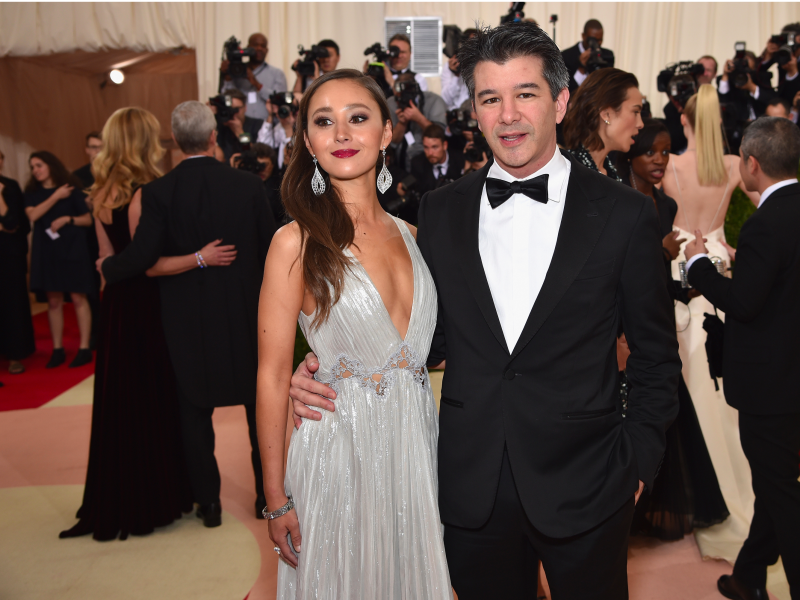
A report by The Information describes a 2014 visit by an Uber team to an escort-karaoke bar in Seoul.
According to the report, "four male Uber managers picked women out of the group, calling out their numbers, and sat with them." After the evening, a female Uber employee told the company's HR department the trip made her uncomfortable, according to the report.
April 2017: A report claims Apple CEO Tim Cook had threatened to yank Uber's app from the App Store
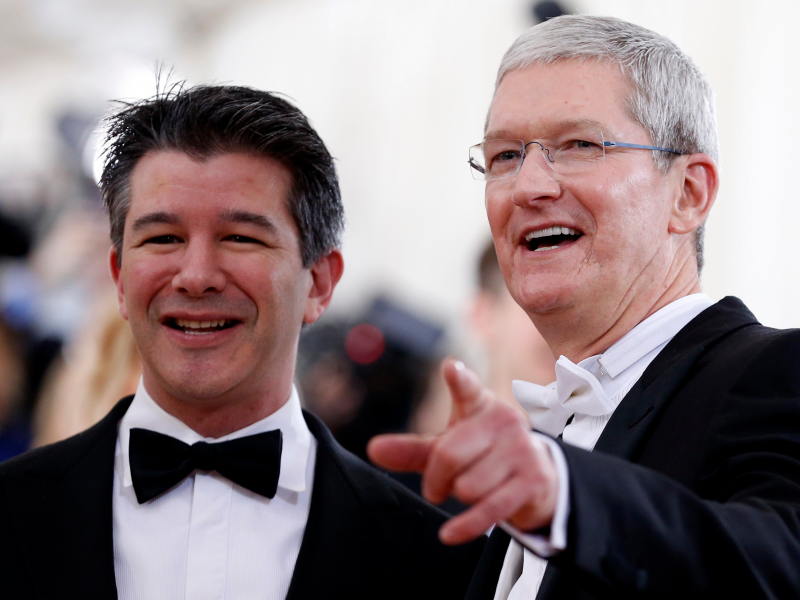
The New York Times reports Cook accused Uber of violating the App Store's terms and conditions.
Uber had incorporated into its app a small piece of code that could identify particular phones, even if after they had been wiped of their data. The ride-hailing company had included the code to prevent fraud, according to the report. The software allowed the company to detect if someone was using the same phone over and over again but wiping it repeatedly to take advantage of promo codes.
May: Uber has to pay out millions after a bad accounting error
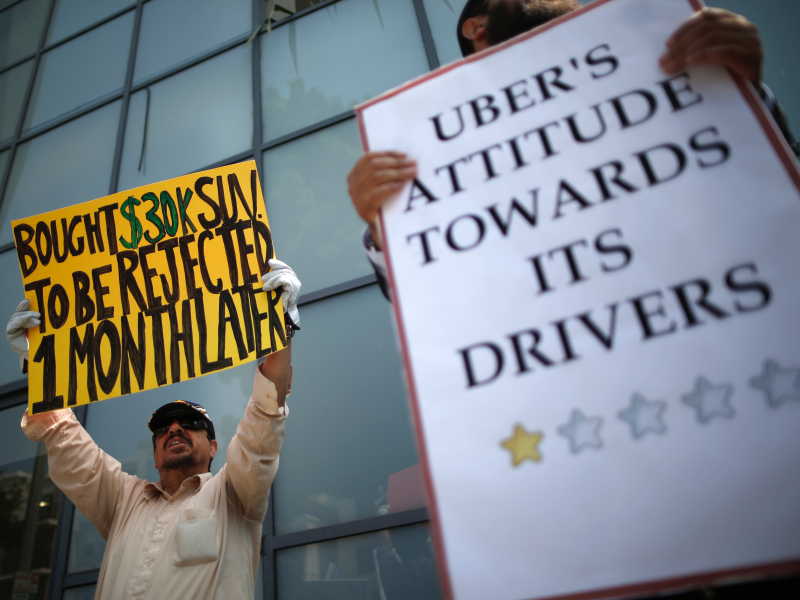
Uber reveals an accounting mistake caused it to shortchange its drivers in New York City for years. Uber tells drivers in New York City it will repay them "tens of millions" of dollars after it took more than its share of the fares customers paid for rides. On average, most drivers in the city will receive about $900, the company says.
June: Uber fires over 20 people for bad behavior
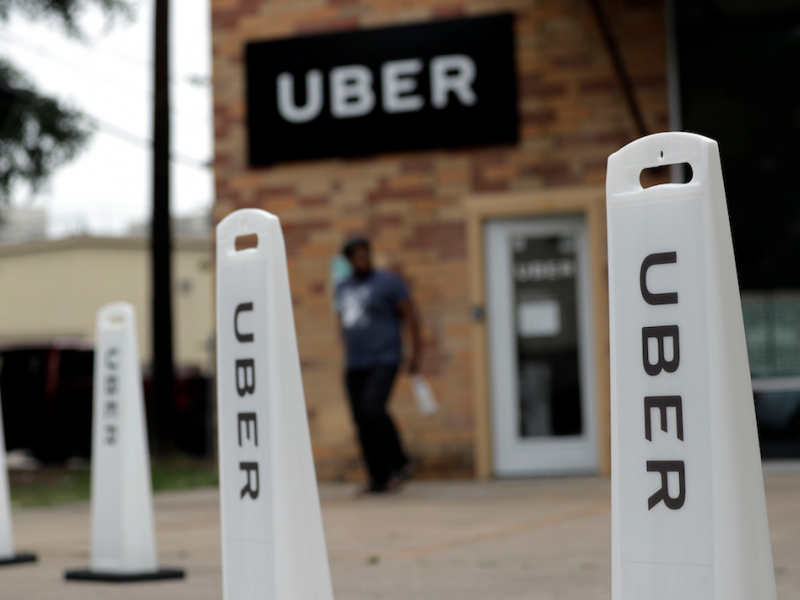
Uber fires more than 20 employees as a result of its internal investigation. The company says it received 215 complaints during its inquiry into inappropriate behavior at its workplace, with the highest number of complaints related to discrimination, sexual harassment, and unprofessional behavior.
June 7: Uber fires a senior executive for carrying around Indian rape victim's medical records
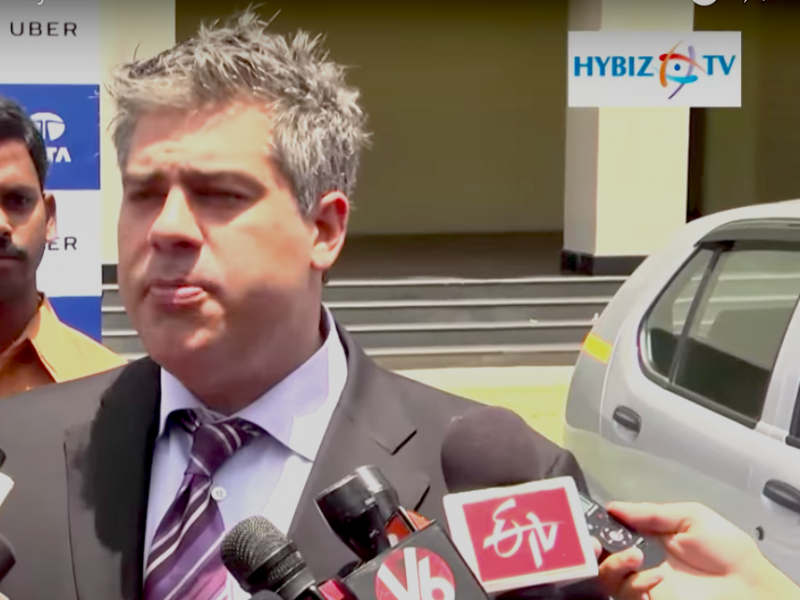
Uber fires its head of Asia business, Eric Alexander. Alexander had been reportedly carrying around the medical records of a rape victim from India for a year and had shown them to other top executives.
Uber's top executives, including Kalanick, allegedly looked at the records and pointed to them while internally questioning whether the rape occurred, according to a report in Recode. The executives also speculated that one of Uber's rivals in India could have been using the report of the rape to undermine the company there, according to the report.
A day later the victim sues Uber over the mishandling of her private information.
June 8: The infamous "Miami Letter" becomes public
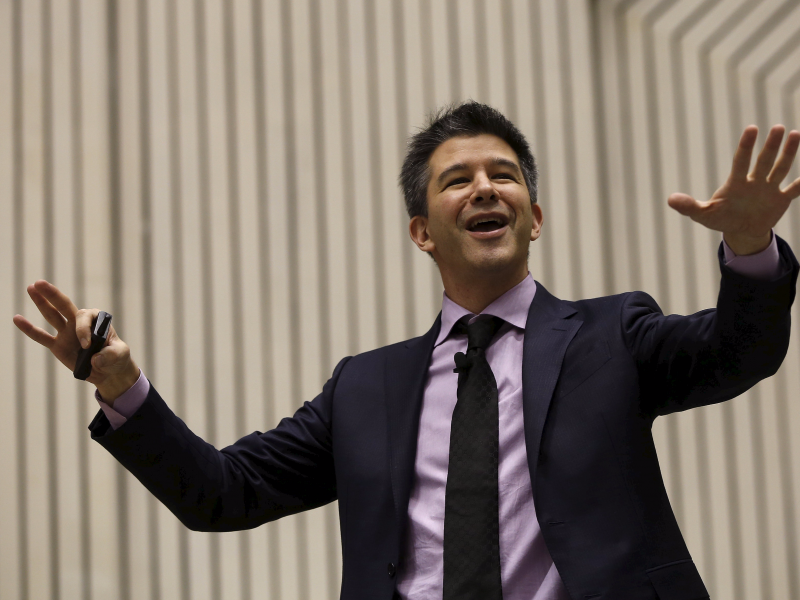
Recode publishes an internal message the CEO sent before the 2013 event. Reading a lot like what a college fraternity president might send out to his brothers, the email, which Kalanick sent out to hundreds of employees before the 2013 event and again the following year, spelled out company rules about drinking and sex.
June: Uber's business chief and Kalanick confidant is pushed out

Uber's business chief Emil Michael is forced to resign amid board pressure, bringing the number of executives to leave the company since the beginning of the year to an even dozen.
Emil Michael had overseen Uber's broader business strategy, including its partnerships and fundraising. Michael, who was known to have a direct role in several of Uber's scandals, resigns as the company nears the completion of its internal investigation. He blames the board, and not his own behavior, for his departure from the company, Bloomberg reports.
July 2017: Kalanick reportedly says he plans to return as CEO just a month after stepping down
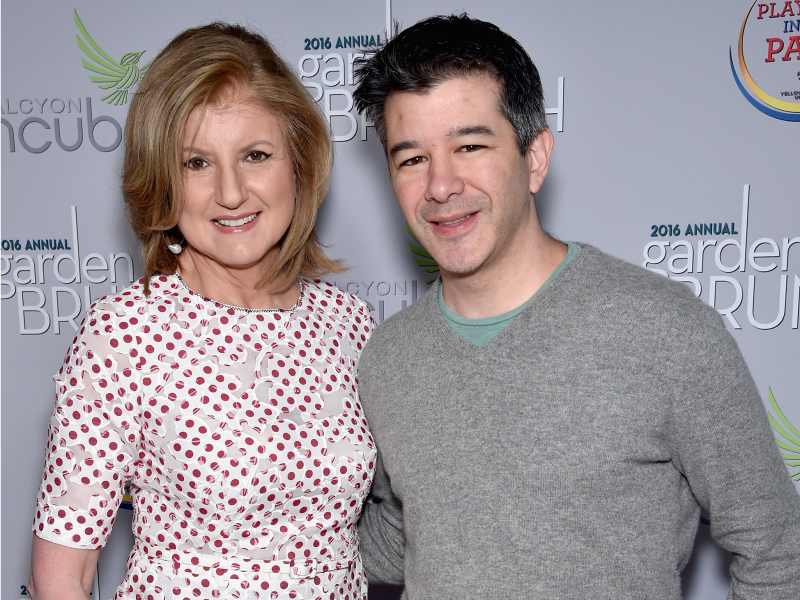
Kalanick resigned as Uber's CEO in June after investors demanded that he step down following an internal investigation into the company's culture.
The ex-CEO told several people at the company that he was "Steve Jobs-ing it", a reference to the cofounder of Apple who was fired from the company but later returned and turned it into the world's most valuable firm, according to Recode. Board members later shot down rumors that Kalanick would return.
August 2017: Reports emerge that Uber knowingly rented cars that were at risk of catching fire to its drivers in Singapore

A Wall Street Journal report that says internal emails show Uber managers in Singapore were aware of a April 2016 recall on Honda's Vezel SUV, but continued to rent the cars to drivers without fixing the defect. Honda recalled the car because it could catch on fire.
It's unclear whether Uber executives in San Francisco or then-CEO Travis Kalanick knew of the recall.
August 2017: A VC files a lawsuit against Kalanick
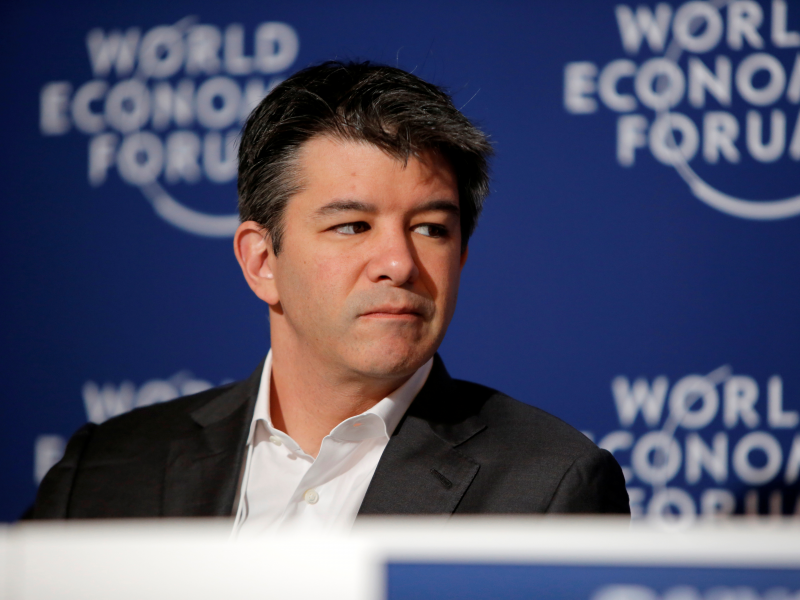
An early Uber investor, Benchmark Capital, sued Kalanick over claims he committed fraud in 2016. The suit centers on the creation of three additional board seats at Uber in June 2016, which Benchmark argued Kalanick is using to slow down his exit from the company.
September 2017: Uber loses its license to operate in London
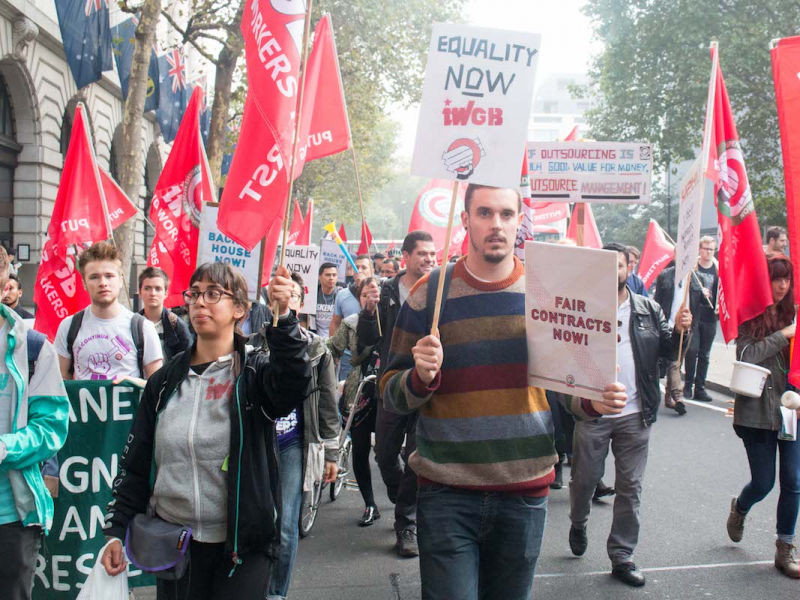
"Transport for London said Uber was not 'fit and proper' to hold a license," Business Insider UK reported. "It said the company's approach to reporting serious driver offenses, approach to driver medical and safety checks, and use of its secret 'Greyball' software to dodge transport officials all contributed to its decision."
August 2017: US Justice Department announces investigation into whether Uber violated foreign-bribery laws
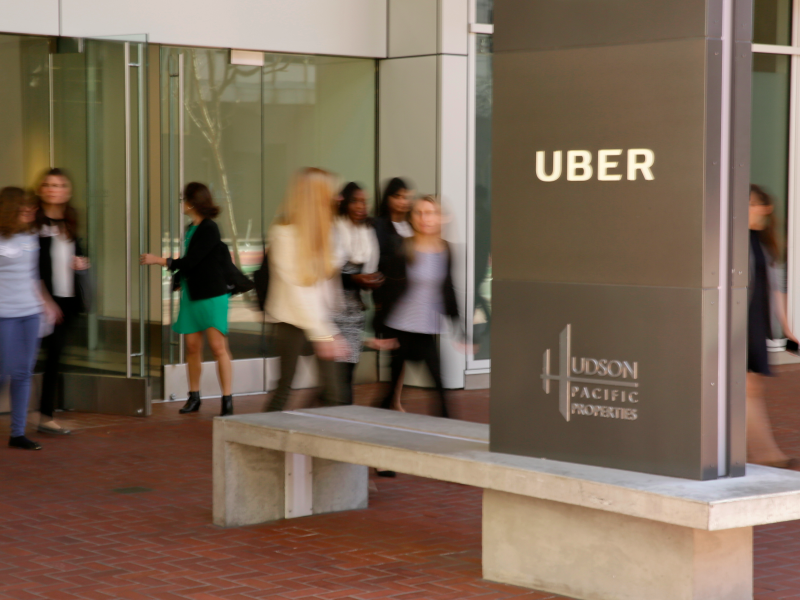
The DOJ is examining allegations that Uber may have violated the Foreign Corrupt Practices Act. The law makes it illegal for individuals and organizations to pay foreign government officials in order to obtain or retain business.
Bloomberg and Reuters both reported that the American ride-hailing company has been looking into multiple payments in Indonesia, Malaysia, and elsewhere.
October 2017: News breaks Apple gave Uber's app 'unprecedented' access to sensitive Apple features that can record iPhone screens
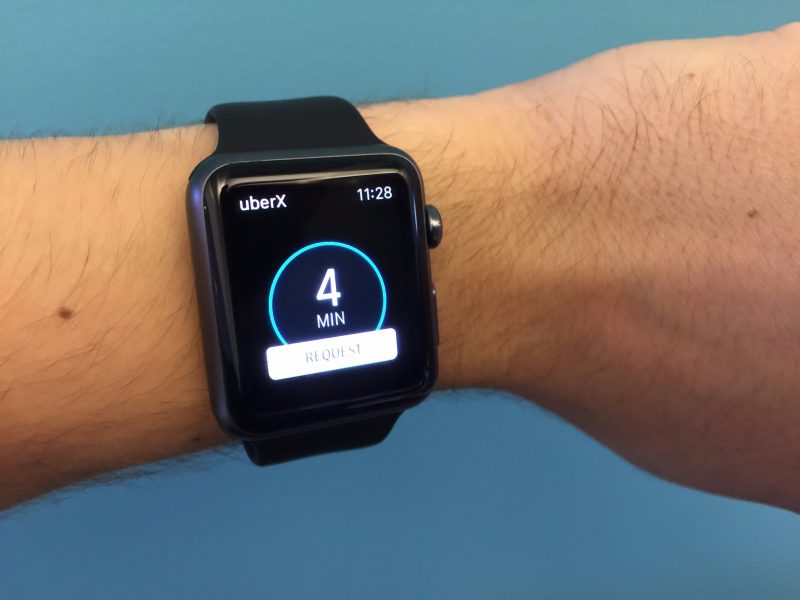
"Uber's iPhone app has a secret back door to powerful Apple features, allowing the ride-hailing service to potentially record a user's screen and access other personal information without their knowledge," Business Insider reported.
"This access to special iPhone functions - which are so powerful that Apple almost always keeps them off-limits to outside companies - is not disclosed in any consumer-facing information included with Uber's app."
November 2017: News breaks alleging that Uber tried to cover up a cyberattack that impacted millions of customers
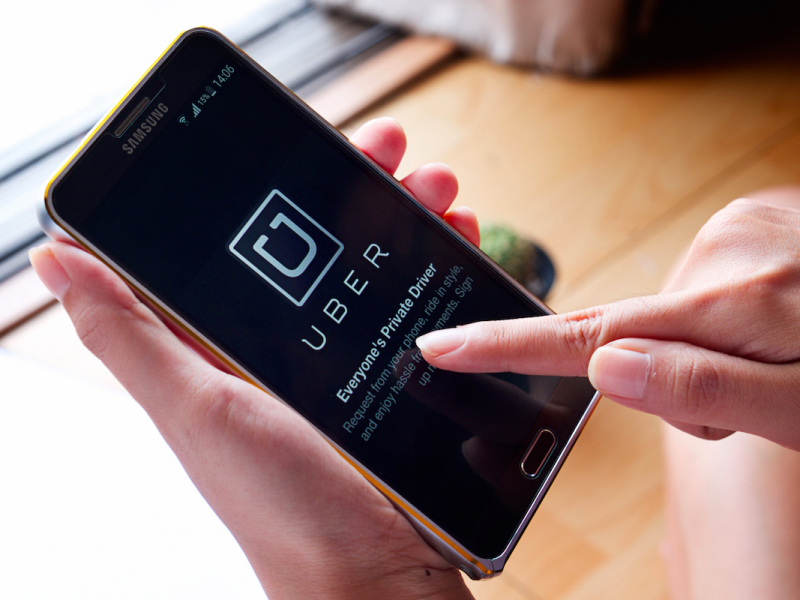
Bloomberg reported that Uber paid hackers $100,000 to cover up a cyberattack that exposed 57 million people's personal data.
While the breach occurred in October 2016, it only became public when Uber published a blog post on the attack in November 2017. Uber's then-CEO Kalanick was reportedly aware of the breach a month after it occurred.
"None of this should have happened, and I will not make excuses for it," Dara Khosrowshahi, who joined Uber as CEO in September, wrote in the post. "We are changing the way we do business, putting integrity at the core of every decision we make and working hard to earn the trust of our customers."
February 2018: Uber settles with Waymo
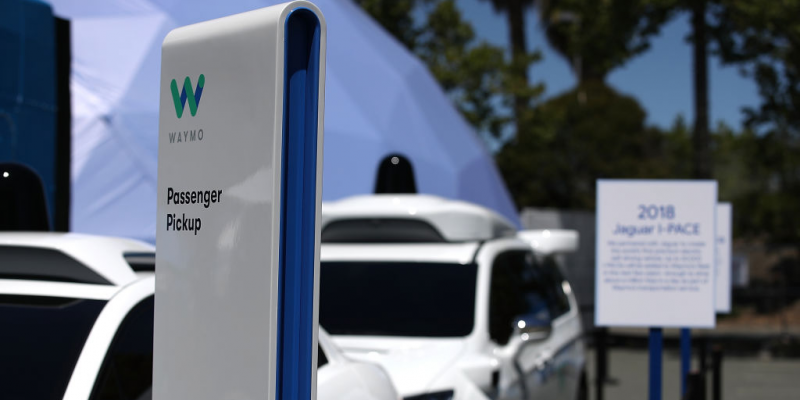
Uber agreed to fork over $245 million worth of equity to settle the much-watched lawsuit brought against the company by self-driving competitor Waymo.
In a statement, CEO Dara Khosrowshahi effectively apologized, saying, he wanted to "express regret for the actions" and that "We agree that Uber's acquisition of Otto could and should have been handled differently."
March 2018: An Uber self-driving car strikes and kills Elaine Herzberg in one of the first recorded pedestrian deaths involving an autonomous vehicle
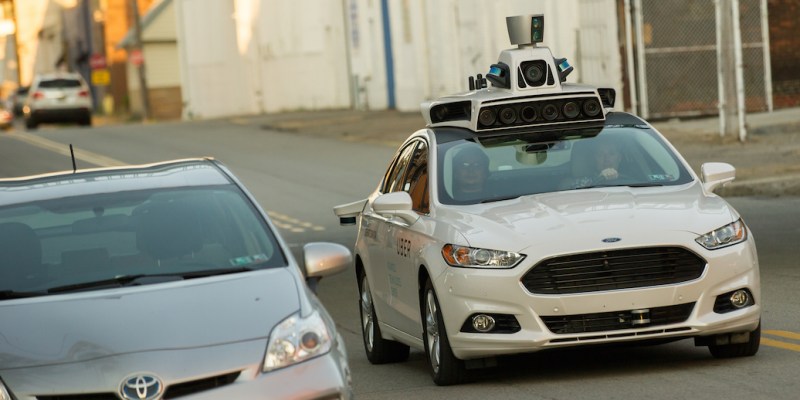
On March 18, a self-driving Uber test vehicle struck and killed Elaine Herzberg in Tempe, Arizona while in autonomous mode.
It was one of the first times recorded that a self-driving vehicle was involved in the death of a pedestrian.
Halzberg was crossing the road at night outside of a crosswalk, but the Uber vehicle didn't slow down after she entered the road and hit her at 39 MPH. Reporting from Business Insider suggests that the car's threshold for breaking in response to recognized objects had been reduced, potentially in an effort to create a more pleasant ride, after the car unnecessarily put on the breaks in response to things like tree branches.
Uber paused its self-driving program in response to the death, but re-booted it in December 2018.
April 2018: CNN reveals that over 100 US Uber driver had been accused of sexual assault or abuse of passengers
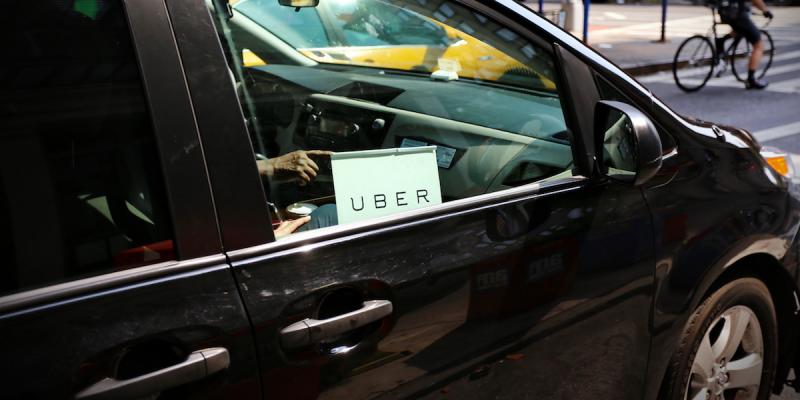
On April 30, CNN revealed that court records and police reports showed that over 100 US Uber drivers had been accused of sexual assault or abuse of passengers.
According to CNN, Uber announced that preventing sexual assault was a new company priority in the run-up to the publishing of the investigation, saying that it would start running yearly background checks on its drivers.
July 2018: Uber HR chief resigns after discrimination probe

Following a Reuters report that she had repeatedly dismissed allegations of discrimination at the company and allegedly made disparaging and discriminatory remarks about the company's head of diversity, former Uber HR chief Liane Hornsey resigned from the company in an email.
Hornsey did not specify why she was leaving in the email, but it followed an investigation into the report from law firm Gibson Dunn, who allegedly substantiated unspecified portions of the allegations.
September 2018: Uber agrees to pay $148 million following 2016 data breach
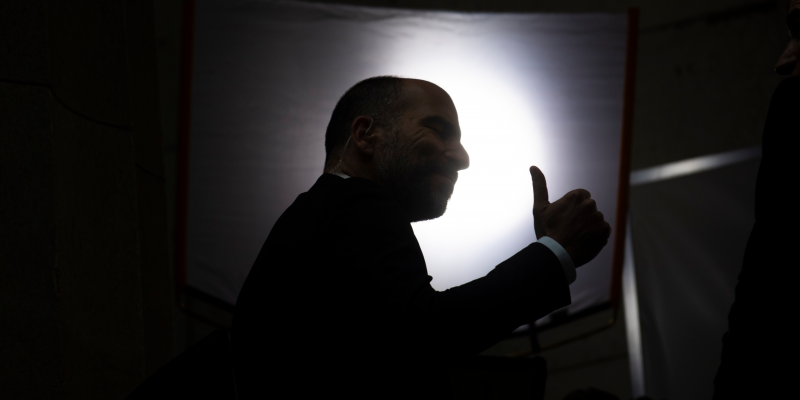
In September, in a settlement with attorneys general from every US state, Uber agreed to pay $148 million for legal disputes around a data breach that affected 57 million users in 2016.
The breach exposed information that included drivers license numbers, names, and phone numbers, and was revealed in a November 2017 Bloomberg report. Instead of notifying regulators and those affected by the breach at the time, Uber paid the "hackers" $100,000 in an attempt get rid of the information.
October 2018: Saudi murder of journalist Jamal Khashoggi raises questions about Uber funding
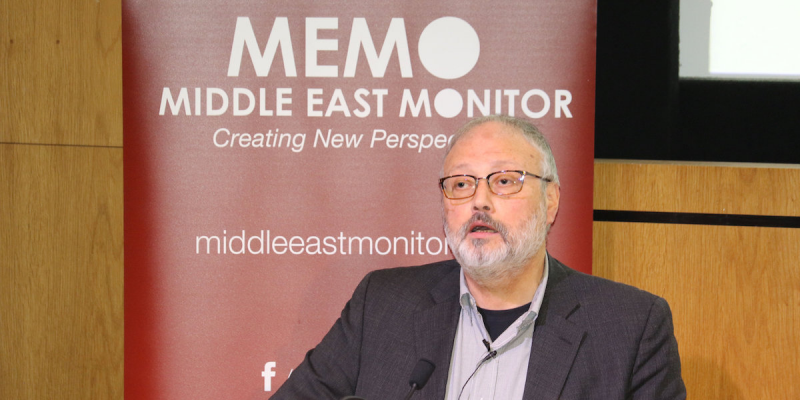
Following the news that the Saudi Arabian government most likely assassinated journalist Jamal Khashoggi, Uber, and other companies, began to take heat for their association with the Saudi government through their funding ventures.
In November, Uber CEO Dara Khosrowshahi said he was "anxious" over the news, which inspired a call for a boycott from Bahrain's foreign minister.
Uber took $3.5 billion from Saudi Arabia's Public Investment Fund and has majority investment from Soft Bank, whose Vision Fund is backed by the Saudi government. The Saudi Royal family has a seat on Uber's board as a result of those investments.
Eventually, the controversy fizzled, and Uber announced that it would acquire its largest competitor in the Middle East, Careem.
April 2019: Uber announces new safety initiative after student killed in fake Uber pick-up

University of South Carolina student Samantha Josephson was allegedly murdered in late March after getting into a car that she mistakenly thought was her Uber.
Following the incident, Uber announced that it would hold campus awareness events about safety, send notifications reminding riders to verify their drivers, and run ads reminding users about steps they can take to verify that they are getting into the right car.
Following the death, the South Carolina house of representatives passed a bill that would require ride-sharing drivers to post illuminated company signs.
May 2019: Uber and Lyft drivers strike ahead of IPO
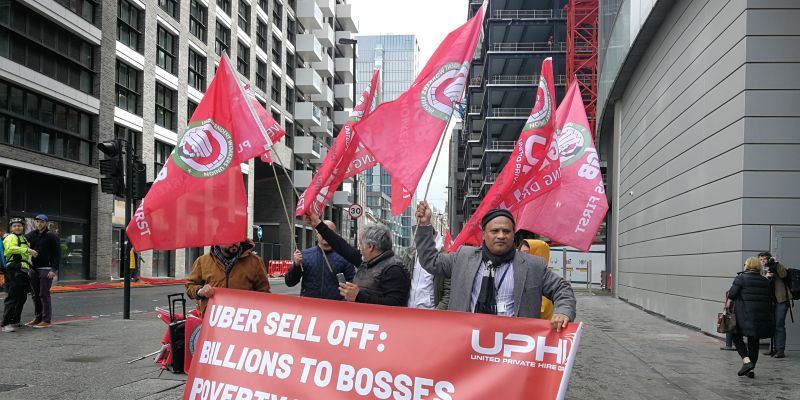
Uber and Lyft drivers around the world called for a strike against the company one day ahead of its IPO.
Drivers complained about falling wages and a lack of transparency. After fees and costs, it's estimated that on average Uber drivers take home about $9.21 per hour.
